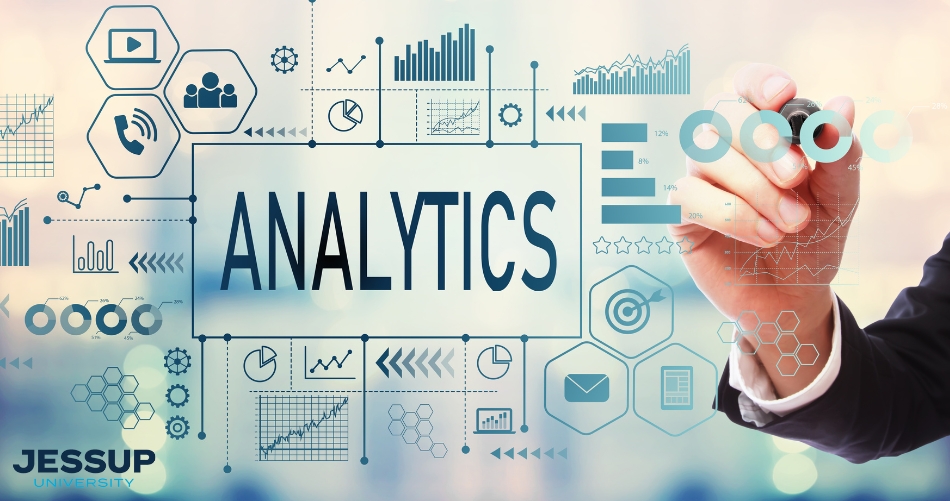
Will Data Analytics Be Automated? The Future of Data Analysts and AI Automation
Over the last few years, artificial intelligence (AI) and automation have increasingly entered the workplace, leading many to wonder about their potential impact on jobs. One area that has faced questions is that of data analytics – with powerful new AI tools like ChatGPT demonstrating an ability to generate human-like text, could the need for human data analysts soon disappear?
In this article, we’ll examine if and how AI could automate data analytics roles, the limitations of current technology, and how analysts can skill up to remain relevant.
Key Takeaways: Why Data Analysts Are Here to Stay
- Current AI, like ChatGPT, still makes frequent errors and lacks real contextual comprehension – unable to replace human analytics.
- AI excels most at repetitive data processing tasks, freeing up analyst time for higher-level thinking.
- Veteran analysts remain essential for strategic planning, critical thinking, and contextualizing model outputs before making business decisions.
- Rather than mass job losses, AI is creating many new analytical roles focused on responsibly managing and gaining maximum value from algorithms.
- The analysts who will thrive are those proactively upskilling in AI applications while sharpening human strengths like communication, creativity, and ethics.
Want To Learn Computer Science From Home?
Jessup University’s Unique Online BS in Computer Science Can Make It Happen!
Understanding ChatGPT and Current AI Capabilities
ChatGPT is just one example of the rise of “generative AI” systems that can produce original text, images, audio, code, and more. The critical innovation enabling this leap in AI quality is a significant improvement in natural language processing (NLP) – the ability to understand and generate human language.
ChatGPT specifically showcases exciting progress in two main areas of NLP:
- Large language models (LLMs) – vast neural networks trained on massive text datasets, allowing them to understand and respond to prompts with relevant, coherent responses.
- Transfer learning – the ability to take the knowledge gained by solving one task and apply it to a different but related one. For example, GPT-3, the LLM that powers ChatGPT, gained its basic language skills by “reading” millions of online articles and books.
However, despite the hype, ChatGPT also displays significant limitations:
- Its responses frequently include basic factual errors and need more nuance.
- It has no actual ability at critical thinking – simply generating plausible-sounding text from patterns in data.
- It cannot directly process data inputs like numbers, graphs, or tables – limiting its ability to perform proper analysis.
So, while the rise of generative AI points to a robust AI future, current technology still needs to catch up to human analytical capabilities.
How AI Is Used in Data and Business Analytics
The large amounts of complex data businesses generate make AI-based analytics tools increasingly valuable. Machine learning has proven adept at finding insights humans easily miss, boosting productivity. Some current business applications include:
- Automating repetitive analytical tasks – like data collection, cleansing, processing, and basic reporting.
- Surface-level insights and recommendations – like best analytics practices, creating valuable data sources and optimal report formats for stakeholder needs.
- Identifying baseline insights – like correlations between inputs and outputs across massive historical datasets.
However, current AI cannot match humans for contextual explanation and deeper meaning. The inputs, assumptions, and inferences behind analytical insights require judgment calls only human subject matter experts can reasonably make and explain.
As such, while AI automates parts of the analytical process, human oversight remains essential for quality, trustworthy insights businesses can confidently act upon.
AI Won’t Fully Replace Data Analysts

Given AI’s rapid progress in automating intelligent behaviors, could ChatGPT-like systems eventually match all aspects of human analysis?
While the long-term future remains unclear, in the foreseeable horizon, full automation appears unlikely because current AI still lacks several core human strengths essential for quality analysis:
- Strategic Planning: Only humans can determine analytical objectives supporting business goals and craft comprehensive strategies, ensuring insights generate real value.
- Creativity: Humans surpass AI at ingeniously connecting seemingly unrelated ideas and devising novel solutions to complex challenges.
- Critical Thinking: AI cannot contextualize phenomena essential for analytical judgments – understanding shifting market conditions, evaluating input credibility, and accounting for unknowns.
- Emotional Intelligence: Humans steward trust and interpret emotional needs far better, tailoring communications for skeptical executives or distressed employees in a way AI cannot.
Today’s best AI are fast, accurate pattern recognition engines, not strategic thinkers. So, while they will continue displacing entry-level analytical roles focused on data processing, they must do more than replace senior analysts acting as strategic advisors.
These veterans spot gaps in automated insights, make calls on appropriate actions, and ensure decision-makers understand the meaning behind data – translating AI outputs into business outcomes through masterful communication and emotional connectivity.
New Analyst Jobs Created by AI
Rather than mass job losses, the rise of analytics-focused AI assistants creates impressive data analyst and data scientist careers centered around responsibly managing and extracting maximum value from machine learning tools. These include:
- AI trainers – analytical domain experts who teach systems to extract custom insights from company data.
- Metrics specialists – identifying ideal indicators for algorithms to monitor and optimize.
- Data ethicists – review analytical AI for bias, fairness, and transparent processes aligned with regulations.
- Analytics translators – communicate model outputs to stakeholders in simple, compelling narratives leading to action.
So, while AI will automate aspects of entry-level analysis, senior analysts adept at human judgment and communication are here to stay. Indeed, their strategic oversight, helping organizations extract full value from AI, promises to make their contributions more pivotal than ever.
How Future Data Analysts Can Prepare for Automation
Given automation’s inevitable advancements, how should existing and aspiring analysts skill up to remain relevant?
Embrace AI Collaboration
Proactively partner with AI teams in your company. Learn to complement automated strengths like raw computational power and endless patience with distinctly human qualities like creativity and cross-domain thinking.
Position yourself not as competing with AI but as essential stewards leveraging AI as a tool for augmented insights and heightened productivity.
Sharpen Communication Skills
Strengthen abilities to compellingly communicate insights to technical and non-technical audiences across platforms like presentations, reports, and casual hallway chats.
Excellent communication contextualizes data for others, spurring real-world action – a human skill AI sorely lacks.
Specialize in Strategy
Master higher-order competencies like designing analytical roadmaps tied to business objectives, identifying assumptions and limitations behind models, and deriving nuanced implications essential for planning.
Such strategic skills require a uniquely human capacity for critical thinking AI cannot match. Focus here to cement your value.
Stay Ahead of the Curve
Actively seek out emerging best practices for responsibly applying AI in analytics. Learn to audit systems for biases and stay abreast of relevant governance issues around data transparency, privacy, and ethics.
Position yourself as an expert guiding organizations to use new tools and use them wisely.
The analysts who thrive in coming years will not ignore AI or regard it as a threat. They will proactively incorporate it as a productivity multiplier while doubling down on irreplaceable human strengths.
How to Become a Data Analyst Automation Savant

Are you looking to become a data analyst with skills that make you an attractive candidate to many hiring organizations? Well, Jessup University’s Bachelor of Science in Computer Science presents an in-depth program fusing traditional data analytics and AI automation. With on-campus or online learning options, students can choose their preferred format to excel.
Flexible Learning Modes for Aspiring Data Analysts
Students have the flexibility to choose between on-campus and online learning modes. Those attending in person gain from direct interactions with faculty, collaborative opportunities with peers, and engaging in various campus events structured over 15-week semesters.
Conversely, online learners benefit from the convenience of flexibly accessing course materials and faculty support over accelerated 7-week terms.
Data Analysis Focusing On Alternative Learning Methods for Future Data Analysts
Central to both learning paths is a focus on the critical elements of data analysis. The curriculum is designed to foster a deep understanding of the data analysis process, combining specialized courses, practical projects, and a strong emphasis on ethical considerations.
Critical Skills for Newly Trained Data Analysts
What is computer science? The field of study focuses on computation, information, and automation using computers and computational systems. It’s the backbone and foundation behind data analytics and can lead you in many directions within the tech space.
The program ensures that graduates are well-equipped with a broad range of skills relevant to data analytics. Through required and elective courses, Jessup University’s CS curriculum equips graduates with well-rounded proficiency spanning:
- Fluency in Python, R, and SQL for manipulating, analyzing, and visualizing data
- Statistical modeling, simulation, forecasting, and experimental design techniques
- Database architecture, warehousing, and large-scale distributed systems
- Supervised, unsupervised, and reinforcement machine learning algorithms
- Dashboard, report, and presentation development skills
- Integrating concepts of software engineering and computer programming with creative design
Developing Both Technical and Interpersonal Skills in a Team-Oriented Setting
With an emphasis on small class sizes, Jessup University promotes a close-knit learning community where students develop hard technical and soft skills, such as communication and teamwork, through real-world applications.
Training Data Analysts with a Strong Sense of Ethics
The program equips students with technical skills and instills moral values grounded in Christian principles. This approach ensures the cultivation of responsible, professionally prepared graduates ready to embark on their career path in data analytics.
Want To Learn Computer Science From Home?
Jessup University’s Unique Online BS in Computer Science Can Make It Happen!
Let’s Get Started on Your Data Analytics Adventure at Jessup University
Jessup University’s Bachelor of Science in Computer Science is an ideal stepping stone for those wanting a career as a data analyst, offering a balanced mix of theoretical knowledge, practical skills, ethical grounding, and flexible learning options.
The world needs talented data analysts who understand our data-centered reality. Are you ready to fulfill this challenging yet gratifying role? If so, reach out for more information now; you could be on your way to a new, rewarding career!
More Engineering & Technology Articles
-

What is the Future of Cloud Computing in 2024 and Beyond
Cloud computing has revolutionized how businesses access computing resources, store data, and deploy applications. Instead of maintaining expensive on-premises infrastructure, companies can leverage the cloud…
-

Data Analyst Job Outlook: The Bright Future of Data Analytics Careers
Data analytics is one of the fastest-growing and most in-demand fields today. As organizations across industries realize the power of data to drive strategic decisions,…
-

What Does a Data Analyst Do? An In-Depth Look at This Exciting Career
The age of data is upon us. As technology evolves at lightning speed, the amount of data generated daily reaches unfathomable heights. It’s estimated that 2.5 Quintilian bytes of data are…




